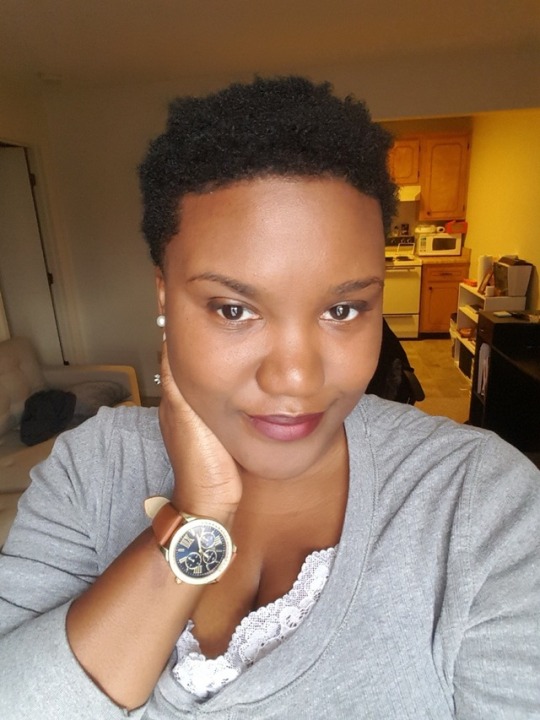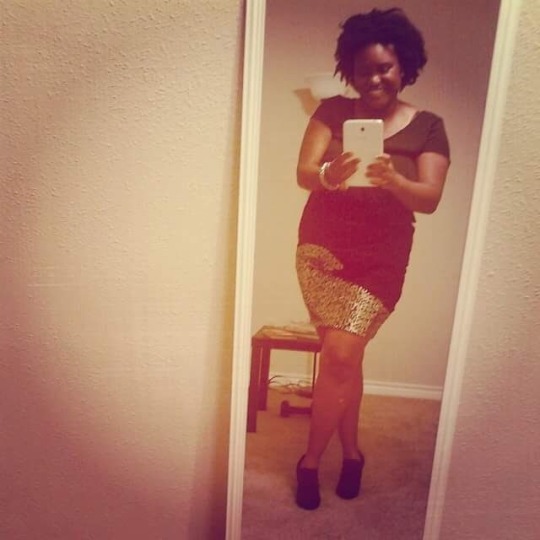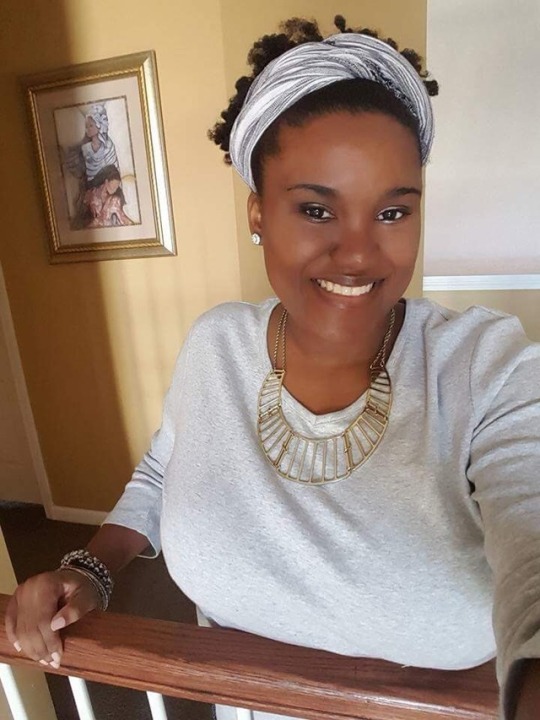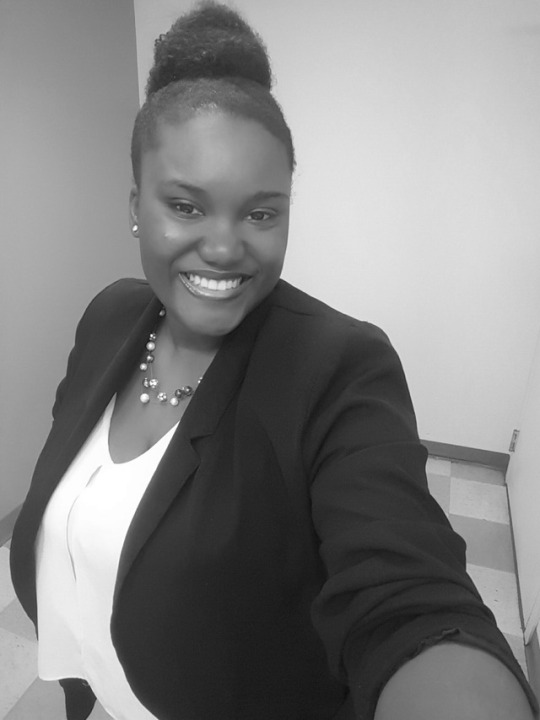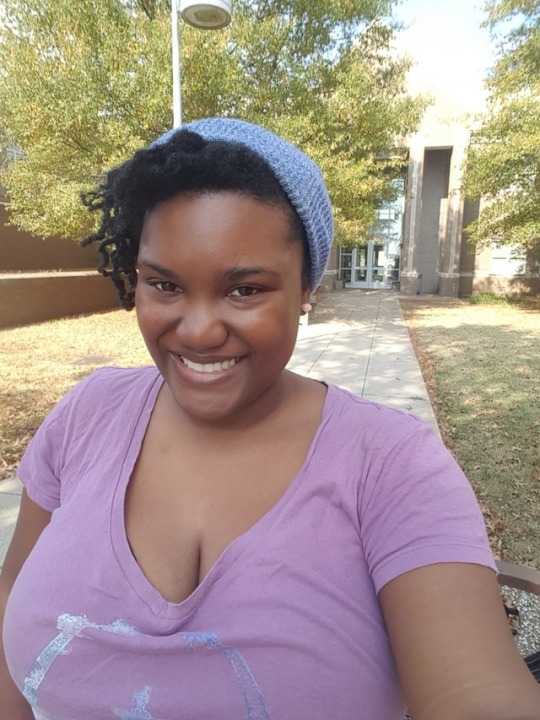#bicommunity
Explore tagged Tumblr posts
Text
"When Gallup conducted its first poll on US LGBT Identification in 2012, it found 3.5% of Americans identified as LGBT. Its latest survey, released in February 2023, shows that this percentage has more than doubled in the past decade to reach 7.2%, with members of Generation Z — those born between 1997 and 2004 — the most likely to identify as part of the LGBT community."
2 notes
·
View notes
Text
Enroll now : https://nareshit.com/courses/power-bi-online-training
Unleash the Power of Data with Power BI Online Training at Naresh-IT!
Are you ready to turn data into insights and drive impactful decisions? Join our Power BI Online Training at Naresh-IT and become a data visualization expert!
Why Choose Naresh-IT for Power BI Training?
Comprehensive Curriculum
Hands-on Projects s
Expert Instructors
Job Placement Assistance
Transform your career with the best Power BI training in Hyderabad!
#PowerBI#PowerBIDesktop#DataAnalytics#BusinessIntelligence#PowerBIAI#DataStorytelling#PredictiveAnalytics#SelfServiceBI#PowerBIUpdates#BICommunity#PowerBIDevelopers#PowerBITrends#DataGovernance#AdvancedAnalytics
0 notes
Text
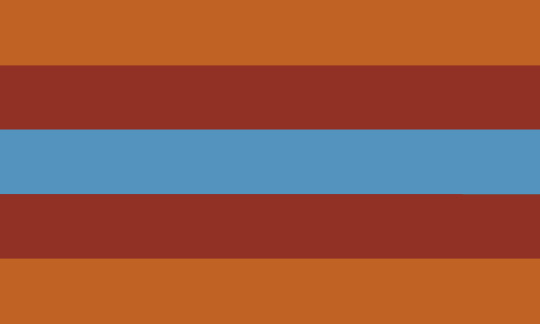











IDs are in alt text due to amount. each ID also has the flag name in the description since they're all using pretty much the same colours, and we figured it could get confusing!!
flags for pack/communal orientations we coined a little bit back!!
just going to use -pack in these for ease, but -pack in any of these can be replaced with -communal. from top left to bottom right, the flags are: homopack, heteropack, bipack, panpack, polypack, omnipack, abropack, apack, apackspec, fictopack, autopack, and intrapack
not gonna use our taglist since it's just flags lol. also, we thought we were out of spoons for this, but somehow we aren't? it's an autism month miracle
#flags#our terms#homopack#heteropack#bipack#panpack#polypack#omnipack#abropack#apack#apackspec#fictopack#autopack#intrapack#homocommunal#heterocommunal#bicommunal#pancommunal#polycommunal#omnicommunal#abrocommunal#acommunal#acommuspec#fictocommunal#autocommunal#intracommunal
27 notes
·
View notes
Text
Yayyyy bisexuals. I love you bisexuals. a little sloshed on eggnog rn because I’m a #noghead. But bisexualswill save the world it hink
#elliott.txt#I love you guys#the bicommunity wa s so acceptingwhen i was first realizing I was queer you guys are like family to me
1 note
·
View note
Text
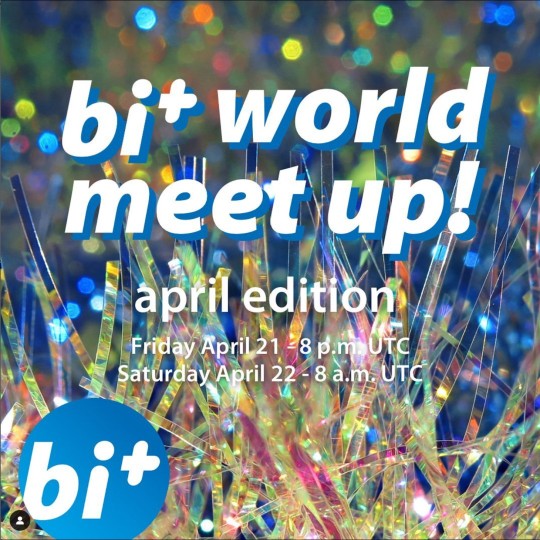
The Bi+ World Meetup starts tomorrow, April 21st -- with another one 12 hours later to accommodate folks in various time zones. If you identify as bi+ (bi, pan, etc.), you are welcome to join us for a healthy dose of #bicommunity & #bipride.
More info & registration at https://biplus.nl/biplus-world-meetup
Organized by Bi+ Nederland & Robyn Ochs. Please share!
2 notes
·
View notes
Text
Crossings and Checkpoints: Walking through all of Nicosia
I've mentioned it before in one of my other posts, but, for one of my commuting routes, I have to go through the Greek and Turkish Cypriot checkpoints and the United Nations buffer-zone. Before coming to Cyprus, I was nervous over what the crossing experience would be like, what documents I would need, etc., so I hope that this post can serve as a guide for anyone traveling to Nicosia. Please note that this doesn't constitute as official legal advice, and I highly encourage looking up what your home country's embassy says about the situation. With that being said, let's continue with the post!
I think it's important to start with the division of Cyprus to understand why the crossings exist. After the Turkish invasion of Cyprus in 1974, Cyprus was split. The Republic of Cyprus, the government recognized by almost all countries as the government of the whole island, retains control of the south. The unrecognized "Turkish Republic of Northern Cyprus", or KKTC in Turkish, has control over the northern part of Cyprus, including the northern part of Nicosia. However, no state except for Turkey recognizes the "Turkish Republic of Northern Cyprus". During the conflict, the UN made a buffer zone between the two sides, and, for many years, you could not cross without special permission.
However, starting from the 2000s, the checkpoints began to open, and many Cypriots have used them to visit their homes and friends who they hadn't seen since before the invasion. You can only cross from one side or the other after presenting your documents at official, recognized crossings. Luckily, the checkpoints are open 24/7 which makes crossing easier.
While there are several checkpoints on the island, the ones used most frequently seem to the be the ones in the Nicosia area. There is the Ayios Dometios/Metehan crossing where civilian vehicles can cross from one side to the other, and there are two others where civilians can easily walk from south to north and vice-versa. Since I can't drive, I used these two.
The first is the one by the Ledra Palace Hotel. This one is available for anyone coming on foot, and certain vehicles, mainly UN and diplomatic vehicles, may also drive through here. Other vehicles are prohibited. I find that this one is more on the edge of the Walled City which means it is a bit less crowded. In the buffer zone here, you can find the Home for Cooperation which hosts many bicommunal events and hosts a nice cafe where people can meet and converse. It opened in 2011, and you can also peruse some books and buy bicommunal olive oil here.
The second is the one on Ledra/Lokmacı Street. This one is only for people coming on foot. The buffer zone is very narrow here, and it tends to get more crowded here at certain times. However, it is an interesting experience since as soon as you cross, the main language on the street changes alongside the architecture and general feel. If you're visiting Nicosia as a tourist, I would probably recommend using this checkpoint since it will also be more convenient if you're visiting museums in the Old City.
To be ready for either crossing, make sure to have your passport ready. From what I've heard, citizens of the European Union can use their national ID card. If you have a residence card from Cyprus or another European country, try to have that ready, too. Make sure to put your phone away once you're next in line at the checkpoint.
Once you get to the checkpoint, you will have to present your passport or ID card to the police. They might ask you for a few things, such as your arrival airport (more on this later), your intended length of stay, whether you intend to go to the Home for Cooperation or the "Occupied Area" (κατεχόμενα/katexomena in Greek), or whether it's your first-time crossing. Answer these questions truthfully. Then, don't put your passport away! You only went through one of the checkpoints; you still have to go through the other. Once you repeat this process at the other checkpoint, then you should be good to go on to the other side.
It might be a bit easier to understand with an example. In my case, I'm usually crossing from the Greek Cypriot side to the Turkish Cypriot side. Therefore, I need to take out my passport and Republic of Cyprus ID card. Once I'm there, the police usually take my passport and ID card. They might ask me a few questions, like if I'm going to the buffer zone or the occupied area. Then, they scan my passport before giving it back to me. I'll walk through the buffer zone area before reaching the Turkish Cypriot checkpoint where I will show them my passport. They'll also look at my passport and scan it; then they'll give it back to me, and I'll walk through the checkpoint area to the exit.
It might sound difficult, but it really is quite simple!
However, there are a few things you should note: One, your arrival airport might affect your ability to cross. Unless you're an EU citizen, you might not be able to cross from the Turkish Cypriot side to the Greek Cypriot side if you landed at Ercan Airport, as the Republic of Cyprus does not consider this a legal point of entry. This also applies to ferry passengers who arrive from Turkey to Cyprus from the port of Taşucu. I think they usually still let you cross. Still, I would be careful and first arrive through Larnaca Airport.
Two, don't try to film or take pictures of police working at the checkpoints. While they probably won't say anything, I have seen people being told to put their phones away. It's fine to look at your phone while waiting in line, but make sure to put it away before it's your turn.
Three, be careful with what words you use to describe the other side. While many people describe this scenario of crossing from one side to the other as crossing a border, I've seen international tourists being scolded for using this terminology since the Republic of Cyprus does not consider going to other side as having crossed an international border. It's fine to use terms like crossing or checkpoint.
Four, if you're a person of color, you might receive increased scrutiny. Full disclosure ahead: while I have all of the necessary documents and have crossed many times, usually without incident, there have been times where I have almost been denied permission to cross. I am not alone in this, however. A Turkish Cypriot colleague of mine told me that this has also occurred with Turkish Cypriots crossing to the Greek Cypriot side.
Five, if you're a non-EU, or US, national, you should still be able to cross. I don't know the specifics for every country, but my housemate is Iranian, and her boyfriend is a Bosnian Serb. Both have been able to cross back and forth without incident as far as I know.
With that being said, I think this covers most questions that people might have about crossing. I hope this helps future travelers to Nicosia, and please feel free to send in any questions that you still have!
1 note
·
View note
Text
A Journey with My Son and meeting Cemal ASPAVA in Gemikonağı
By Helen L. Karayman…. During the 24 hours we’ve spent at Swan of Soli, we’ve made quite an interesting discovery: an antiquities shop in Gemikonağı. The owner, Cemal ASPAVA is a man of many talents. From being a master in martial arts to being multiple darts champion, from being the first Cypriot to organise a bicommunal sports event to being an English teacher, he is also an avid collector and…

View On WordPress
0 notes
Text
friend said (if there are mistakes, idk)
[start]
Absolutely interesting. And thank you for your honesty regarding the topic, you're quite brave because masses like to get so angry when someone challenges them, lol! So, the thing is, when the Hamas attacks first happened, it was obvious that it was wrong. An armed group attacking civilians out of nowhere. But I've seen many Western people praise it, saying "Revolution can't happen without violence". Oh hell, this was not a revolution. It was only violence. An Islamic Fundamentalist group provoking a big army under the name of "oh we are the palestinian people". It was so wrong. Westerners didn't get it.
Thus, Israel had the right to defend itself. But it went on and started a full massacre, if you will. It was known this would happen. You provoke a huge army and expect it to do nothing? Sweet Lord.
All in all, it's a mess. Especially because it's more rooted. The problem lies in the arrival of the Jewish people in Palestine. You pick up Jewish people from Europe and fill them in a random place far from home. It was not random in the religious sense, but you know that it's vastly different from Europe. They settled there and it would lead to territory expansion and Palestinians becoming erased, with "Oh, there was no one here when we came."
I hate Hamas. I support Palestinian people as in the right to have their homes and stand against the Israeli army. I hate the Israeli army. I hate the violence-seekers against civilians of both kinds. Israelis are people. So are Palestinians. It's a tricky situation because it's a rooted problem.
I compare it with the Cyprus problem. When the war in 1974 happened and island was divided, Turkey sent off people from random places in Anatolia to Cyprus. They wanted Turks to settle so they could make the island Turkish. But the island was never fully Turkish, the Turks who came in Ottoman times (1571) had blended right in, creating a Cypriot culture with Greek-speaking Cypriots. Cypriots oftentimes shared more with each other than Greece and Turkey.
(friend is from cyprus)
But no. Turkey sent settlers to change the demographics of the island. Still sends today. And you see it, despite speaking in almost the same way, Turkish-speaking Cypriots and Turkish settlers are different in there. You see, Turkey chose them from the worst regions. If you see an Islamist or someone disrespecting Greek-speaking Cypriots, it's always a Turk.
But then, I look at some of the good settlers. Who were born here as the second generation and want peace. Respectful. Well, they had no fault. It was their grandparents who were bad maybe, but they corrected themselves. And they say that they were born here, their parents were raised here, what are they supposed to do? Is it not their home?
Think of this, but Israelis. They're there since, what, 1948? How many generations does it make? Is it not their home now?
Long story short, if there was a good, kind, and just government who protected the rights of Jewish people and Palestinians, that'd be awesome. If not, bicommunal bizonal federation maybe? Or two-state, but that'd be sort of tricky because even the recognition of Israel could kick off a whole another mess.
If it was a utopia, I'd like it to be one government, one country, all people without extremism. No stealing-homes or shit. But the world is not a utopia and that shit is haunting.
Oh as for Cyprus, I'm a full unificationist. No divided island, just unify it all. Not even a federation would feel enough. No de facto division either. But we have been more peaceful. No violence, no thoughts of hate (other than rare extremists, really).
Why do certain Westerners (not all, but mass media poisoned ones) support Palestine? Because they see their favorite makeup influencer paint a Palestine flag on her face, or share "Pray for Palestine" on his story for 5 hours, or whatever. It's a bandwagon. They don't know the roots of the problem. They don't understand that Hamas is not revolutionary and doing this for the civilians. No. It's always been thirst for blood when someone kills civilians. These Western people don't get it, it's always black-or-white for them. But the world doesn't work that way. This is why they'll ignore massacres if it happens to the side they hate. Or they will find a way to praise massacres if it's by their side. My principle is simple: death is the worst thing you can cause on another human being, good or bad. It might be self defense, therefore you won't be persecuted, but death is still an absolute end of worldly life and it is not something to debate lightly.
[end]
I am going to keep reblogging about Palestine.
I have nothing to say that can't be better said by other people, but in short I am horrified and disgusted that genocide is simply being allowed to happen like this.
As a Jewish person, the fact that this is supposedly being done for my benefit is insulting. I am not being made safer by this genocide.
My culture is, I was taught, about surviving hundreds of years of torment by those who would not accept us and still surviving.
I do not want Palestinians to have to go through what my people did too.
Fuck this.
22 notes
·
View notes
Note
hello! i wanted to ask you something. i always thought of myself as straight, but a while ago i developed a crush on this girl, and i was super confused because i’ve never thought of girls that way. i’ve looked at boys and thought they were attractive, but never for girls. i never looked at a random girl on the street and thought, ‘oh she’s cute.’ but i got a crush on this girl in my class??? and i know i’m not demi because that girl was never close to me. can i have some advice?
Hi,
So this is way more common than you realise. You’re probably bi with a preference for males. Like I always say being bisexual isn’t a 50/50 split down the middle. You can have any type of attraction ratio to identify as bi as long as you’re attracted to two genders.
Being demiromantic or Demisexual doesn’t necessary have much to do with the gender of the person more so to do with in what way you’re attracted to them.
A demiromantic would be a person who is romantically attracted to somebody after getting to know them after a while and a demisexual person is somebody who experiences sexual attracted after getting to know someone deeply after a while.
Hope this helped!
- Lola
#lgbtcommunity#lgbtqia#lgbt#lgbtsupport#bisexual#bi#bicommunity#bisexualcommunity#support#advice#ask#anon#anonask#demi#demiromantic#demisexual#demicommunity
9 notes
·
View notes
Photo

As we are in the middle of Pride Month, I am doing something I thought was really never necessary, but as time goes on i find it is less about me and more about the community I am proud to call myself a part of, as well as leaving an example for those younger than me. I am a raging openly bisexual man. To clear up any misconceptions, I view my bisexuality as being attracted to more than two genders, including but not limited to men and women, nonbinary, genderqueer, and many more. This is something I have always been open and honest about, and will continue to do so in the future without any fear and all the love and pride I have Photos by @leah_marissa_photography #pridemonth #pride #pride🌈 #pride2020 #bisexual #biandproud #bisexualpride #lgbt #lgbtpride #lgbtcommunity #bicommunity (at Staten Island, New York) https://www.instagram.com/p/CBgZL_nDHNA/?igshid=1xozv3uw1uz80
#pridemonth#pride#pride🌈#pride2020#bisexual#biandproud#bisexualpride#lgbt#lgbtpride#lgbtcommunity#bicommunity
2 notes
·
View notes
Photo
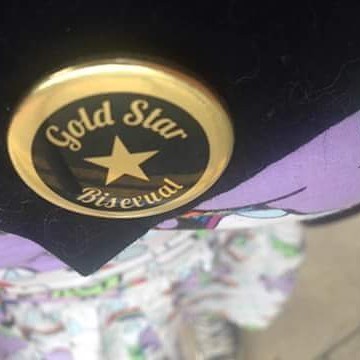
Our Gold ☆ Bi badge spotted in the wild! #bisexual #bicommunity #bi #queer #lgbtcommunity #lgbtqia #lgbtq #bifelicia #wlwm #wlw #mlm #mlmw #sga #mga
2 notes
·
View notes
Photo

Our Stories is a project of The Bicast. Our mission is to record and present stories from our community to our community, and beyond. Each experience in life is a lesson. By sharing our experiences, we also share these our lessons as well. Archiving them, in our own voices, provides a record of who we are. Bisexual (of any spectrum), Pansexual, Transgender, Women, Men, Gender (of any spectrum), POC, young, old; there are no exclusions. We all have something to say. We encourage people to record their own, which can be done with any smart phone or computer. For those unable, or in an unsafe situation, we can record them for you.
http://thebicast.org/2017/08/26/our-stories/
#thebicast#binetusa#bisexual#lgbtqa#personal narrative#demisexual#transexual#bi+#bicommunity#poc#gender
0 notes
Text
Pack / Communal Attraction Orientations
These are all orientations for pack/communal attraction. There aren't currently flags due to our fatigue, but we plan to get to them when we have the spoons; if you'd like to make a flag for it, feel free, but please let us know!
Homopack / Homocommunal: an orientation in which you experience pack / communal attraction to the same and/or similar genders
Heteropack / Heterocommunal: an orientation in which you experience pack / communal attraction to the opposite and/or dissimilar genders
Bipack / Bicommunal: an orientation in which you experience pack / communal attraction to two or more genders
Panpack / Pancommunal: an orientation in which you experience pack / communal attraction to all genders
Polypack / Polycommunal: an orientation in which you experience pack / communal attraction to multiple but not all genders
Omnipack / Omnicommunal: an orientation in which you experience pack / communal attraction to all genders with gender playing a role in attraction
Apack / Acommunal: an orientation in which you experience little to no pack / communal attraction
Apackspec / Acommuspec: the apack / acommunal spectrum
Autopack / Autocommunal: an orientation in which you experience pack / communal attraction to yourself, exclusively or not
Intrapack / Intracommunal: an orientation in which you only experience pack / communal attraction to people in your system
Abropack / Abrocommunal: a fluid pack / communal orientation
Fictopack / Fictocommunal: an orientation in which you experience pack / communal attraction to fiction, exclusively or not
@revenant-coining @chaoscoining (due to making the flag!)
#liom coining#liom community#orientations#pack orientations#homopack#heteropack#bipack#panpack#polypack#omnipack#apack#apackspec#autospack#intrapack#abropack#fictopack#aspec#lack of attraction#attraction to plurality#autospec#mspec#attraction to multiple genders#fictospec#attraction to the same gender#attraction to other genders#spectrum#intra#fluid orientations#attraction to fiction#attraction to self
40 notes
·
View notes
Link
For day #21 of #BiHealthMonth, check out the Bisexual Brunch podcast.
https://twitter.com/BisexualBr.../status/1338169809301889025#bivisibility
1 note
·
View note
Text
In Country Orientation: My First Days in Cyprus



After the pre-orientation sessions online, it was finally time to go to Cyprus!
I flew into Larnaca enroute to Nicosia a few days before the orientation to get myself settled along with one of the other English Teaching Assistants (ETAs).
We spent a few days resting and going around Nicosia. Upon arriving, we began to notice a few things.
First, there were cats everywhere! They were all very friendly, and although they seemed normal sized to me, I had to remind myself that my family's cat back home is actually quite large.
We also had the chance to look around the Cyprus Museum, and we started noticing that many of the artifacts seemed less protected than they would be in the United States. This is something that we would spot at other museums on the island.
Finally, perhaps the other thing we first noticed was how abrupt the demarcation between the two sides was. We were wandering around the old city by the Catholic church when we saw the stacked barrels blocking the way to the other side. It was a bit surreal seeing how this seemingly normal city would suddenly give way to barbed wire and barriers to movement.
A few days later, the rest of the people on the grant came, and we began our orientation!
We had lots of useful sessions on personal safety, the state of the region and Cyprus, among others, but I particularly enjoyed the walking tour. We met up with a local, Cypriot staff member who guided us on a tour of the old city on the northern side, and she told us about the history of Nicosia and revitalization projects in the Walled City. On our way there, we also stopped by the Home for Cooperation which hosts lots of bicommunal initiatives for Cypriots to come together and meet.
At the end of our orientation, I felt much more prepared to start the grant, and I think I came away with a stronger, baseline knowledge of Cyprus.
1 note
·
View note
